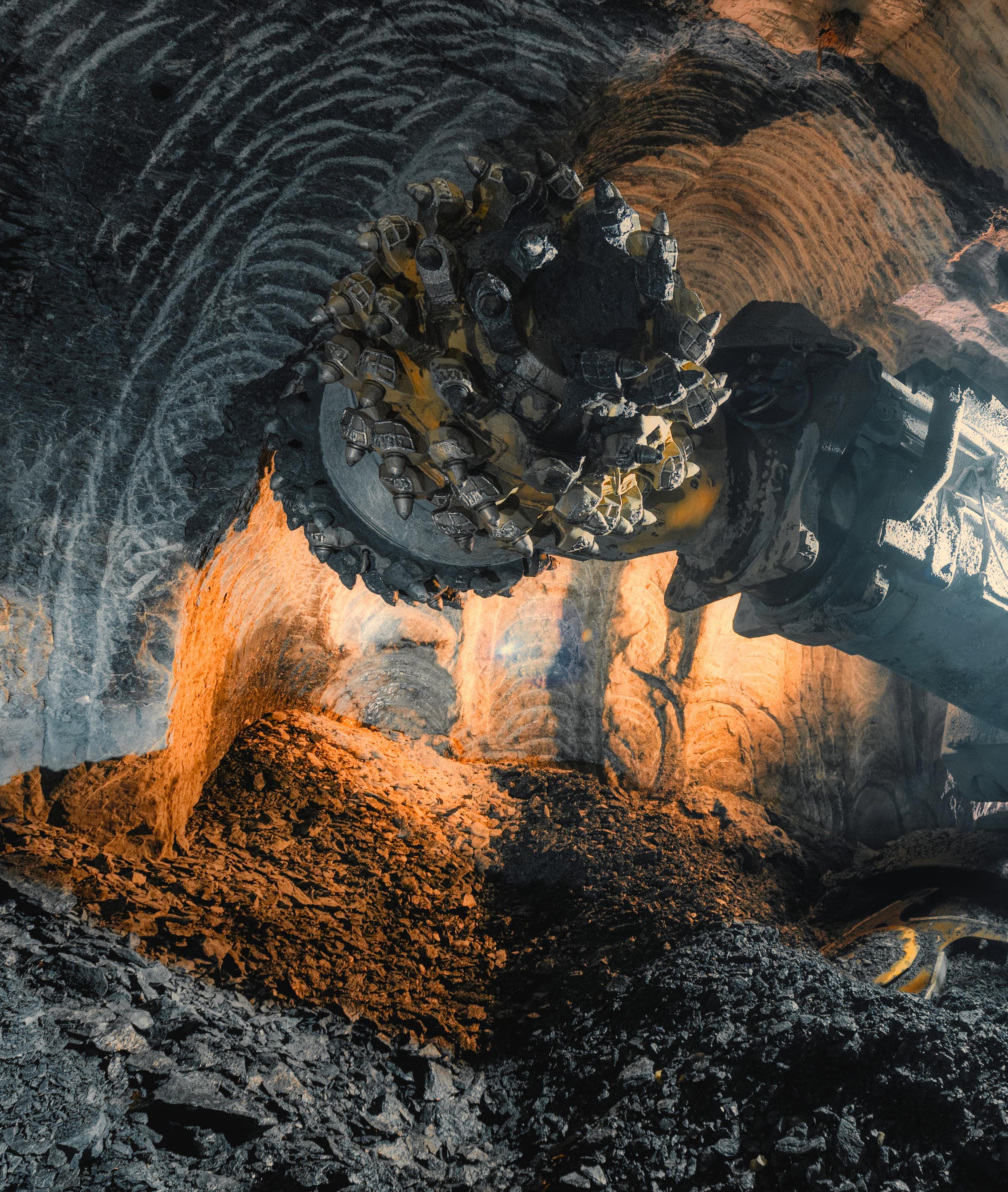

A ONE-STOP SHOP FOR SPECIALISED SERVICES
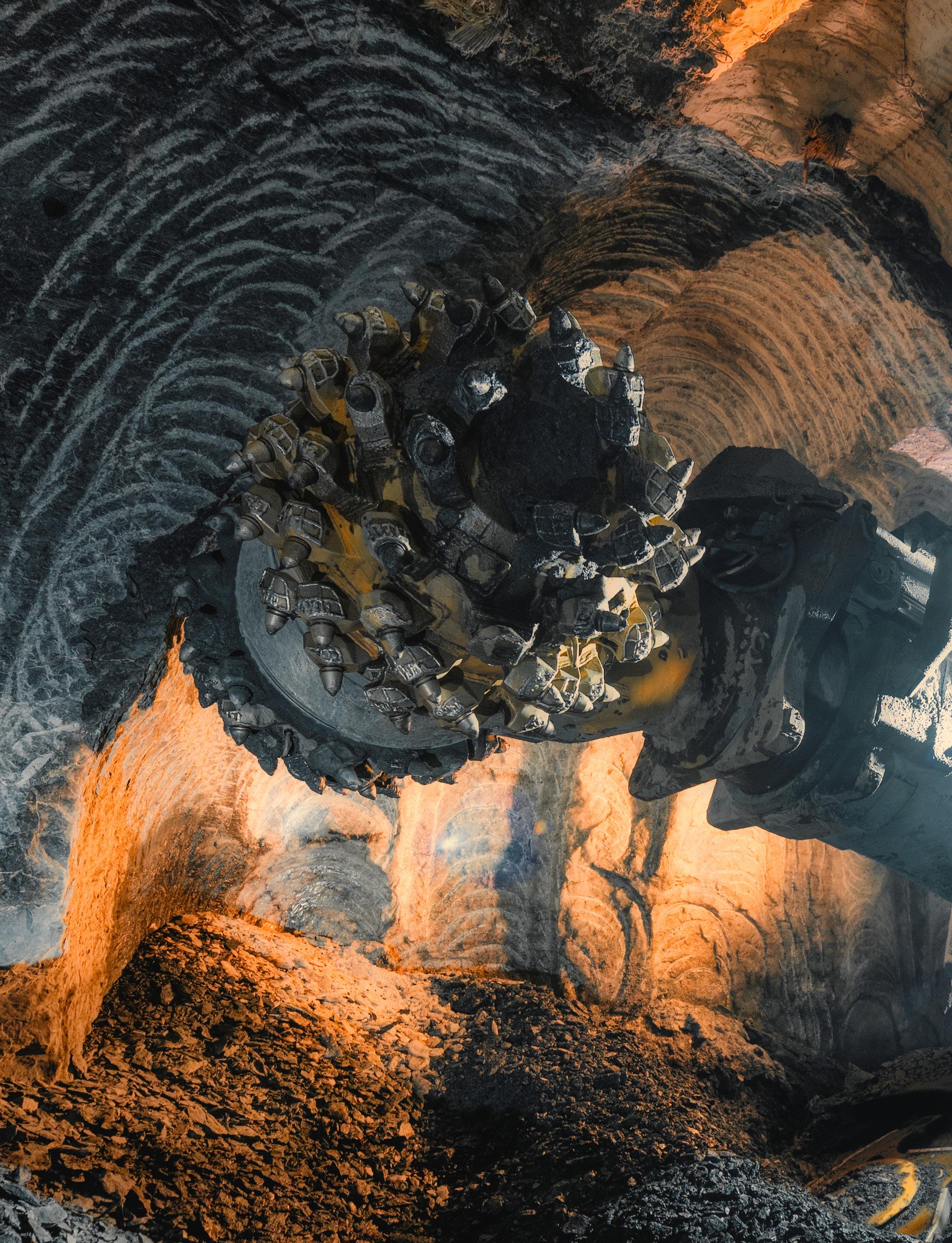

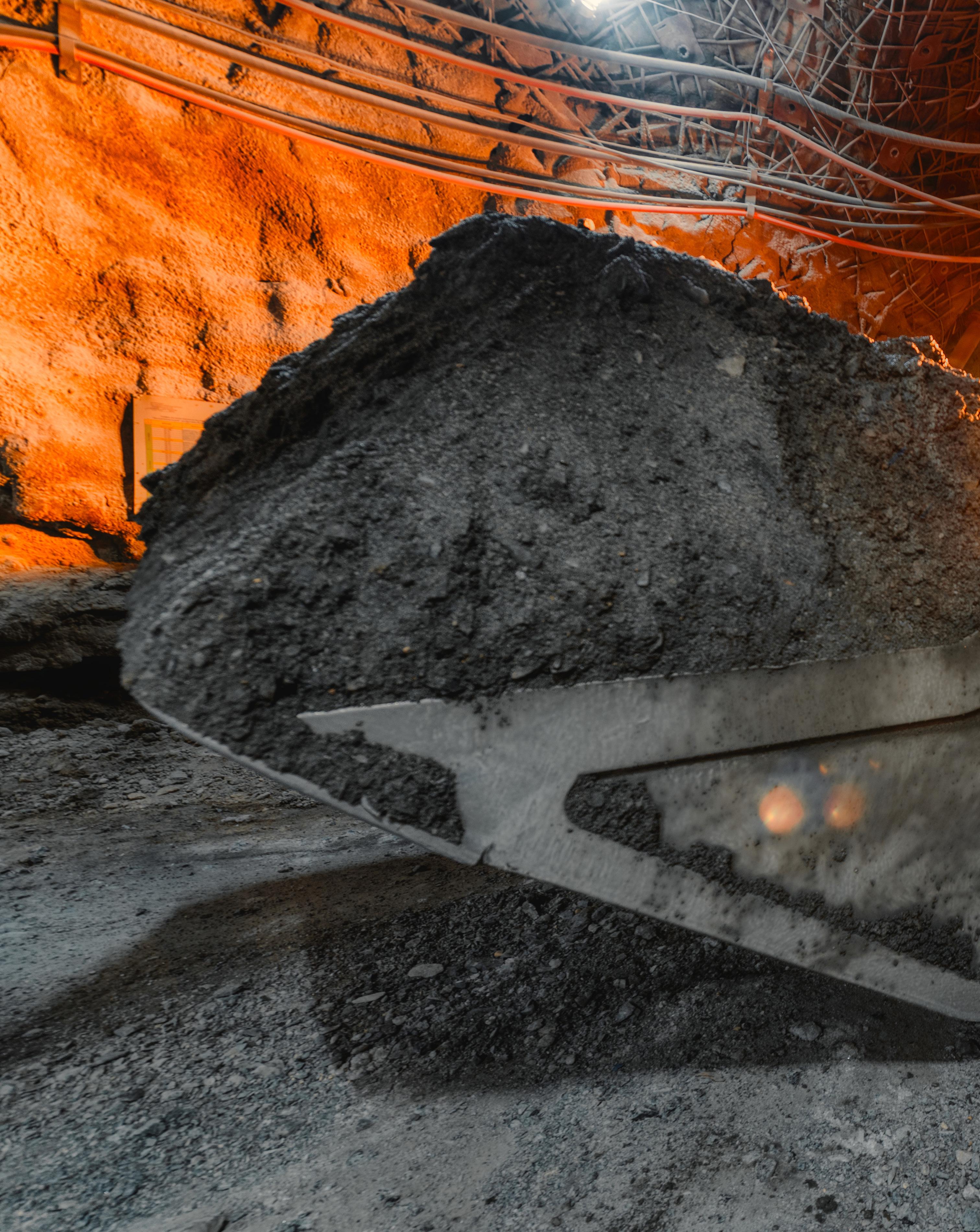






Utilising two decades of specialised expertise to transform the mining industry, Ukwazi offers customised services that drive technical excellence and promote sustainable business practices. Spencer Eckstein, Director of Business Development, highlights the success of the company’s unique organisational design
Writer: Rachel Carr | Project Manager: Thomas Arnold
With 20 years of extensive industry experience, Ukwazi stands out as a comprehensive one-stop shop for mining services that prides itself on providing unparalleled and independent advisory services across a diverse range of markets and geographies, ensuring tailored solutions that meet the needs of its clients.
Based in the vibrant landscape of South Africa (SA), Ukwazi, which translates as ‘to know’ in Zulu, embodies its name through a

deep commitment to knowledge and excellence, consistently demonstrating deep insight in its field.
As a specialised entity in the mining sector, Ukwazi caters to both major and mid-tier surface and underground mining companies, offering an extensive array of services. Its expertise encompasses geology, advanced mining engineering, underground and surface infrastructure design, mine valuation and environmental, social, and governance (ESG) solutions, ensuring operations align with sustainable practices.
The company’s specialised teams and industry experts collaborate to integrate activities across the mining value chain.
“We select the appropriate teams for each project according to the mining method, commodity, and style of mineralisation involved. We match skill sets with project requirements, ensuring the right people are assigned the right tasks. Additionally, we emphasise project controls and management,” introduces Spencer Eckstein, Director of Business Development.
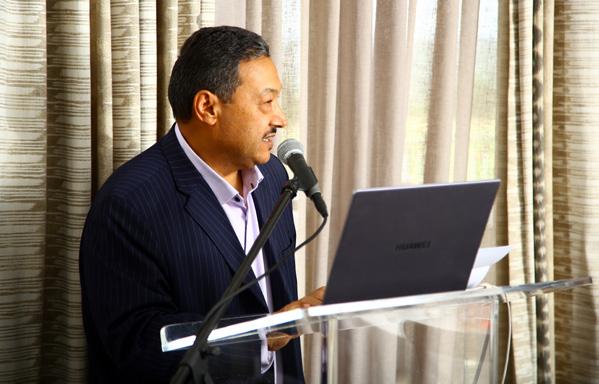
Spencer Eckstein, Director of Business Development: “Recently, Ukwazi finalised an agreement with the Canadian company K-Tec. Through this partnership, Ukwazi is importing scrapers into SA for use in the sub-Saharan African market.
“These scrapers are designed explicitly for earth removal and offer several advantages. They are more than 30 percent lower cost to operate, have significant advantages in terms of safety, and have a reduced emissions profile compared to conventional mining equipment.
“We have recently completed a feasibility study for a client listed on the Canadian Stock Exchange. We take pride in this project due to our innovations, which have enhanced the design, reduced client costs, and improved overall feasibility of the project.
“Additionally, we have focused on enhancing underground mining techniques for various projects involving diamonds and gold. The mining methods and solutions we developed for our clients were significantly innovative, particularly in regards to ventilation, underground infrastructure configuration, and caving mining methods.”
Furthermore, the company offers detailed technical and economic assessments that enable compliant project valuations and public reports, providing clients with the insights necessary for informed decisionmaking. By building strong client partnerships, the organisation enhances efficiency, propels operational success, and advocates sustainable solutions, thereby fostering sector growth and creating employment opportunities.
Ukwazi inspires strong client relationships through a commitment to seamless interactions, transforming the process into an effortless operation of collaboration and trust.
“The fundamental element that differentiates us is our organisational design. We have ‘superteams’ which, over the past 20 years, have focused on mining methods and commodity experience, acting as experts in their fields. We have specific, specialised teams for strip mining, underground coal mining, narrow tabular conventional, mechanised, and semimechanised mining, caving, massive mining, and open pit mining,” Eckstein outlines.
“We are software agnostic, meaning we will use whatever the client prefers. Our mining engineers are familiar with all industry software packages and are superusers.”
As timing and cost are critical for clients, Ukwazi does its utmost to prioritise critical requirements whilst remaining uncompromising on quality. Technical excellence and client relationships are essential to how it operates.
“We listen, but we also maintain our independence to be a strategic advisor to our clients. Ultimately, the key is to not only design the mine right, but also design the right mine. We must focus on integrated mining solutions that deliver the appropriate
mine for our clients, aligning with their objectives regarding cost, safety, and ESG considerations.”
Ukwazi’s goal is to avoid strictly adhering to rigid project management styles and delivery methods. Instead, it aims to incorporate client feedback into its fit-for-purpose designs as much as possible within each discipline.
“We have maintained long-term relationships with many of our clients and intend to foster partnerships throughout the project delivery process.
“The importance we place on integration means we view projects from a multidisciplinary perspective and ensure that every project team observes a ‘golden thread’ from beginning to end, which means we are continuously focusing on designing the right mine,” elaborates Eckstein.
The mining industry is experiencing several shifts which are shaping its future. For example, renewable energy and electric vehicles (EVs) are increasing the demand for battery metals such as lithium, cobalt, and nickel.
This emphasises the need for sustainable mining practices and exploring new deposits to meet rising demands. As easily accessible deposits become scarce, companies are exploring more remote and challenging settings.
“Looking ahead, a significant trend that will affect the industry is the energy transition associated with battery metals. However, one challenge is the level of funding available for the exploration of new mining opportunities. Companies may need to seek out more isolated locations to discover new deposits,” observes Eckstein.
Concurrently, countries are increasingly prioritising their mineral resources, leading to policies
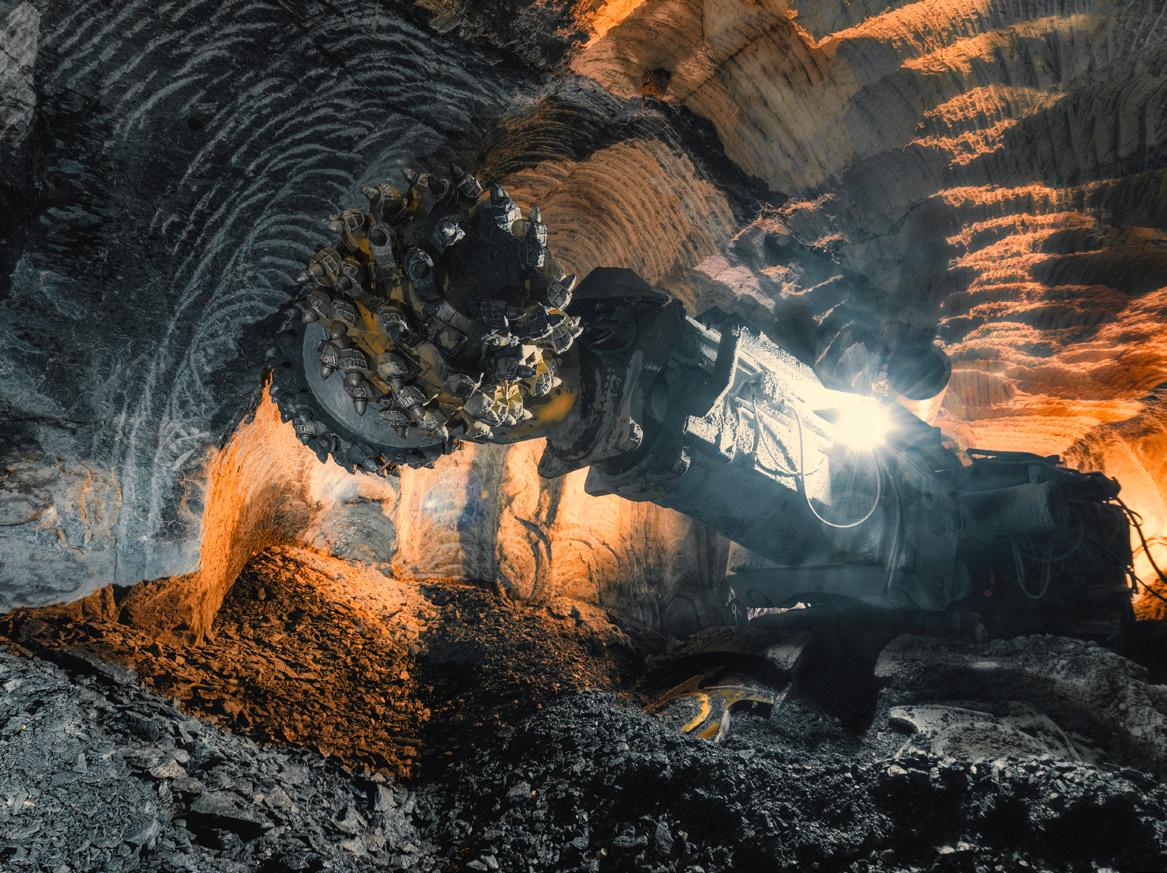

favouring local ownership and control of mining operations, which can affect international investments and operations as nations strive to enhance their economic benefits from natural resources.
“There is an increasing need to optimise mining strategies to maximise value. However, challenges will always arise concerning recycling stocks and materials, especially in sectors like iron ore, steel, and platinum.”
Another trend that can impact the industry is the implementation of critical mineral policies by various countries.
“As a result, we may witness a phenomenon known as resource nationalism to some degree,” he warns.
Aware of industry shifts and market trends, Ukwazi closely follows its clients as part of its strategy to


“THE IMPORTANCE WE PLACE ON INTEGRATION MEANS WE VIEW PROJECTS FROM A MULTIDISCIPLINARY PERSPECTIVE AND ENSURE THAT EVERY PROJECT OBSERVES A ‘GOLDEN THREAD’ FROM BEGINNING TO END, WHICH MEANS WE ARE CONTINUOUSLY FOCUSING ON DESIGNING THE MINE RIGHT”
– SPENCER ECKSTEIN, DIRECTOR OF BUSINESS DEVELOPMENT, UKWAZI
strengthen relationships and achieve diverse objectives, enabling it to deliver services wherever needed.
Indeed, the mining industry is undergoing a transformative shift with the integration of artificial intelligence (AI). With the need for increased efficiency, safety, and sustainability, AI technologies are proving invaluable in
various aspects of mining operations. This advancement goes beyond a trend; it is crucial for the industry’s continued progress.
“AI is becoming increasingly prevalent, but the mining industry hasn’t fully adopted it yet. It remains uncertain how this technology will be utilised and implemented. Some

companies have begun to use it in exploration projects to varying degrees of success. However, how we use it needs to be understood and suitable applications identified within the industry,” Eckstein opines.
“At a technical level, particularly in the reprocessing of tailings and residue facilities. Another but different trend is expected to continue, as certain mining operations reach the end of their productive life, there will likely be a shift from open pit mining to underground methods.”
Ukwazi has expanded its global presence by opening an office in Dubai. This new office will focus on the international market, particularly in the Middle East, which is expected to be a key area for future mining activities.
“We are focusing on major projects in the United Arab Emirates (UAE)
TseboKgadi is a Black female-led mining services company specialising in contract mining activities. By partnering with Ukwazi, the company can access specialised skills and capabilities in mining, engineering, and environmental services. This initiative, supported by Ukwazi, aims to improve the representation of women in the mining industry.
“Through our contribution, we have identified several Black female engineers within our organisation who are now part of TseboKgadi, with the intention of transforming it into a sustainable and independent company in the future,” Eckstein enthuses.
“We are currently nurturing the company’s development within Ukwazi, and the plan is that once it achieves sufficient critical mass, TseboKgadi will operate as a fully-fledged and standalone company.”
and Saudi Arabia, initiated by the governments of both countries to decrease reliance on oil and gas. The target is to boost mining revenue to approximately five percent of GDP in these areas,” explains Eckstein. Moreover, with Ukwazi’s recent
expansion in Dubai and its overall growth strategy, the company aims to maintain regional diversification by employing specific techniques.
“Due to political uncertainty, fluctuations in commodity prices, the evolving landscape following

“THE FUNDAMENTAL ELEMENT THAT DIFFERENTIATES US IS OUR ORGANISATIONAL DESIGN. WE HAVE ‘SUPERTEAMS’ WHICH, OVER THE PAST 20 YEARS, HAVE FOCUSED ON MINING METHODS AND COMMODITY EXPERIENCE, ACTING AS EXPERTS IN THEIR FIELDS”
– SPENCER ECKSTEIN, DIRECTOR OF BUSINESS DEVELOPMENT, UKWAZI
the COVID-19 pandemic, and various other factors, we have made a strategic decision to concentrate on growth opportunities in Southern, Central, East, and West Africa, in addition to the Middle East.
“We are also exploring potential opportunities in South America in response to the growing interest in copper, nickel, and gold,” he reports.
Furthermore, ESG is a critical component of every project; therefore, Ukwazi ensures
from inception that all relevant environmental considerations are addressed, from planning execution and ultimately completion.
“Our dedicated ESG team is led by experienced practitioners, with a particular emphasis on water management and integrating closure strategies.”
Ukwazi has established a set of key priorities for the coming year, focusing on strategic growth and innovation.
“Firstly, we aim to remain
consistently relevant to the industry and its requirements around delivering independent mining advisory services whilst meeting clients’ expectations regarding cost and sustainability.
“Beyond that, we will continue to strive to cultivate a diverse portfolio of clients that spans various geographic regions. Our ultimate objective is to provide exceptional value to our clients whilst ensuring we successfully complete each project with the highest standards of excellence,” Eckstein concludes earnestly.


